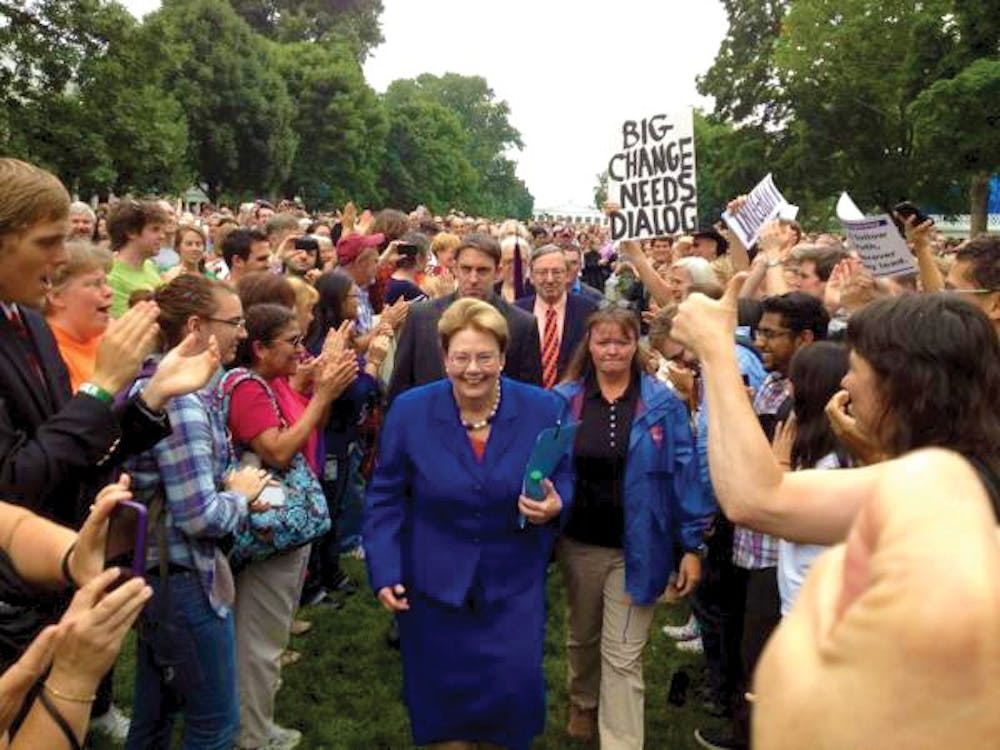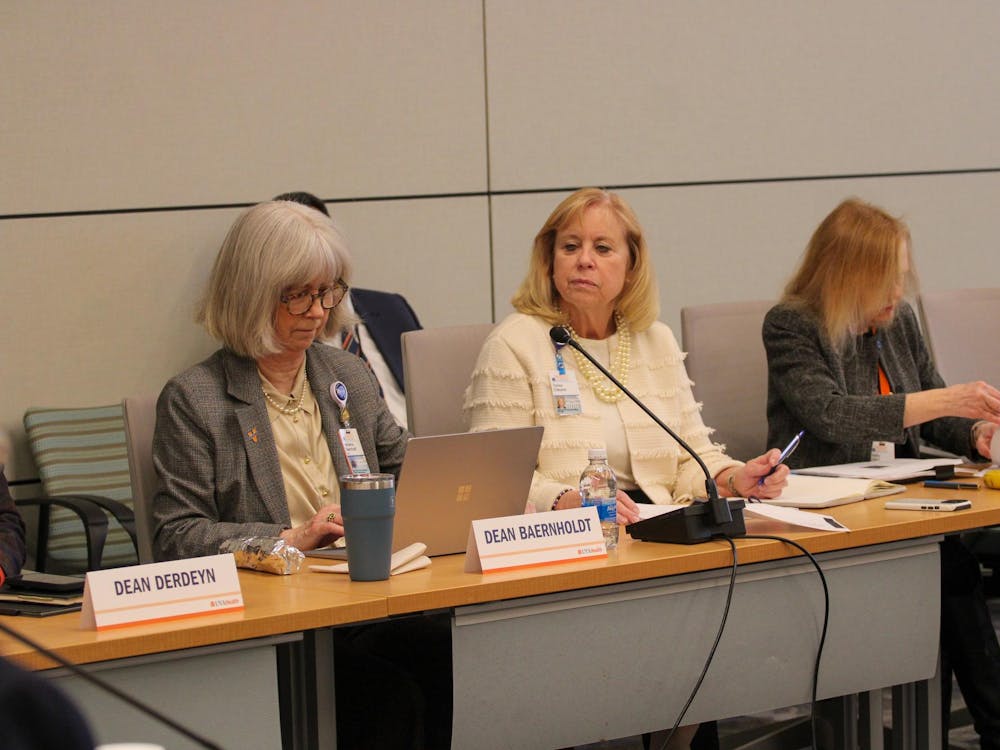The Foundation for Individual Rights in Education, a group that promotes free speech on college campuses, Thursday named the University among the top seven colleges in America for free speech.
The foundation evaluated the student free-speech policies of more than 400 colleges and universities, said Robert Shibley, the foundation’s senior vice president. The University was one of 16 schools that received the distinction of being a “green light” school, a school with no policies meant to censor students.
This is the second year the list has been released, and the University has been on the list both years.
“U.Va. has been green for several years now,” Shibley said. “U.Va. became green when it worked with FIRE to eliminate the last of its policies which could be used to restrict protected speech.”
Dean of Students Allen Groves worked with the foundation in 2010 to address four problems resulting in a “red light” or speech-restrictive rating, and the University has had a “green light” rating ever since.
“[Being recognized for openness to free speech] is very important to me and to every administrator and faculty member with whom I have spoken about it,” Groves said in an email.
The foundation particularly recognized the events that transpired this summer surrounding the resignation and subsequent reinstatement of University President Teresa Sullivan. Although the group took no position on the ouster, Shibley said it was commendable that neither side encouraged the University to censor an open dialogue or limit protests.
Groves said every level of the University administration worked to ensure an open environment. He recounted how the police did not show up in large numbers or in riot gear during the Sullivan protests because, as the one officer who was sent to the scene put it, “that’s not how we do things at U.Va.”
“One of FIRE’s concerns is schools that do not permit free speech or protest in public, visible settings,” Groves said. “This summer, faculty, staff, alumni and students staged several protests at [Board of Visitors] meetings and elsewhere, in one case with protesters standing inside the Rotunda holding signs as BOV members entered.”
The University does put “time, place and manner” restrictions on protests to ensure community safety, Groves said. For example, the University permitted Living Wage Campaign demonstrators to protest in front of the Rotunda last semester but not inside Madison Hall because it would have created safety concerns and work disruptions, Groves said.
“We never make any decisions based on the content of what is being said in protest, but rather based on reasonable time, place and manner considerations that insure [sic] a reasonable opportunity to protest,” Groves said.
The University joins the College of William & Mary and James Madison University, as well as the University of Mississippi, Mississippi State University, the University of Tennessee- Knoxville and the University of Pennsylvania on the list.
Correction: An earlier version of this article cited Dean Allen Groves as saying Living Wage campaigners were prohibited from protesting in Madison Hall because it would have disrupted classes. In fact, he said that demonstrations in Madison Hall were not allowed because of safety risks and work disruptions. There are no classes held in Madison Hall.







